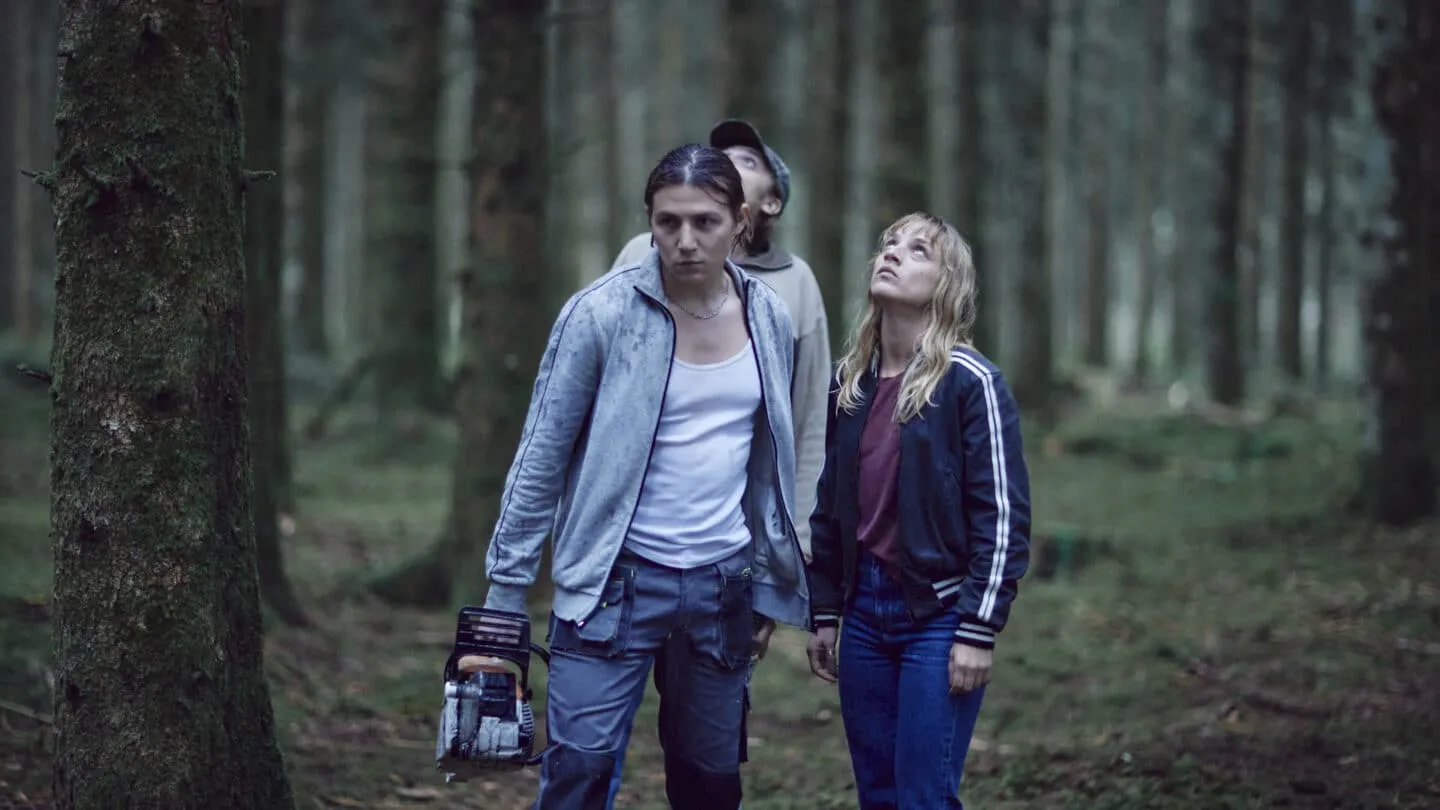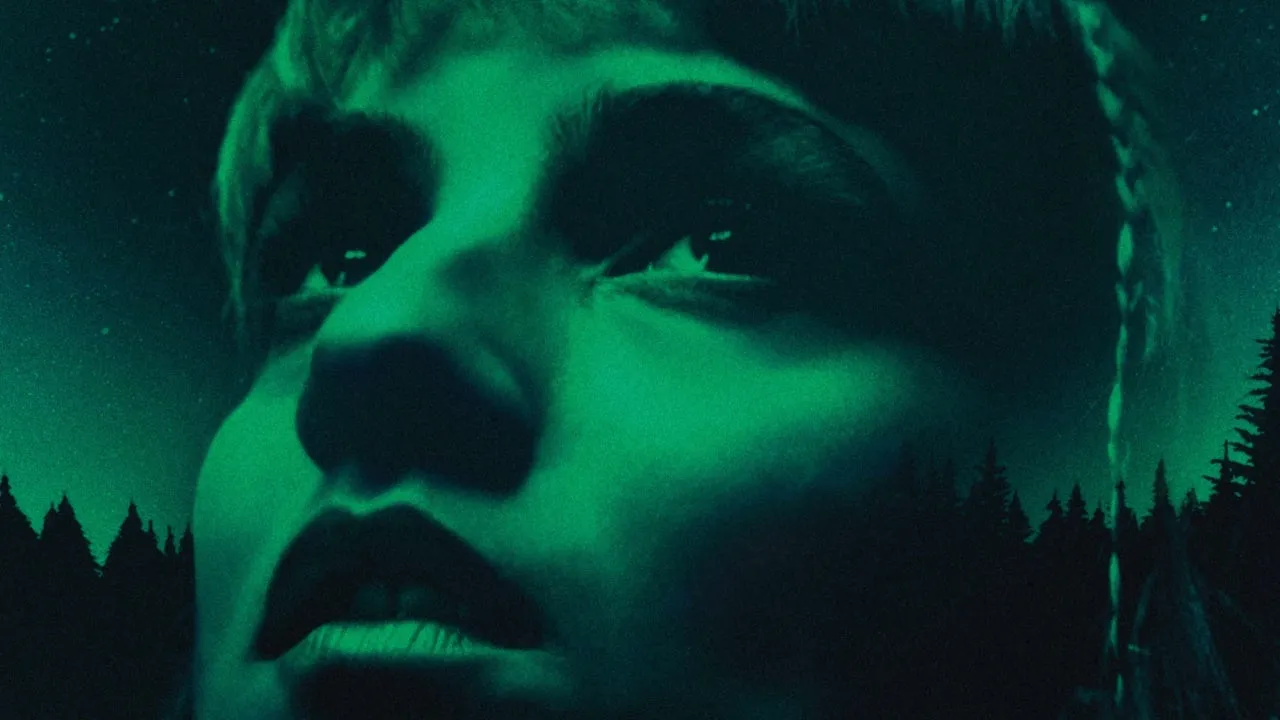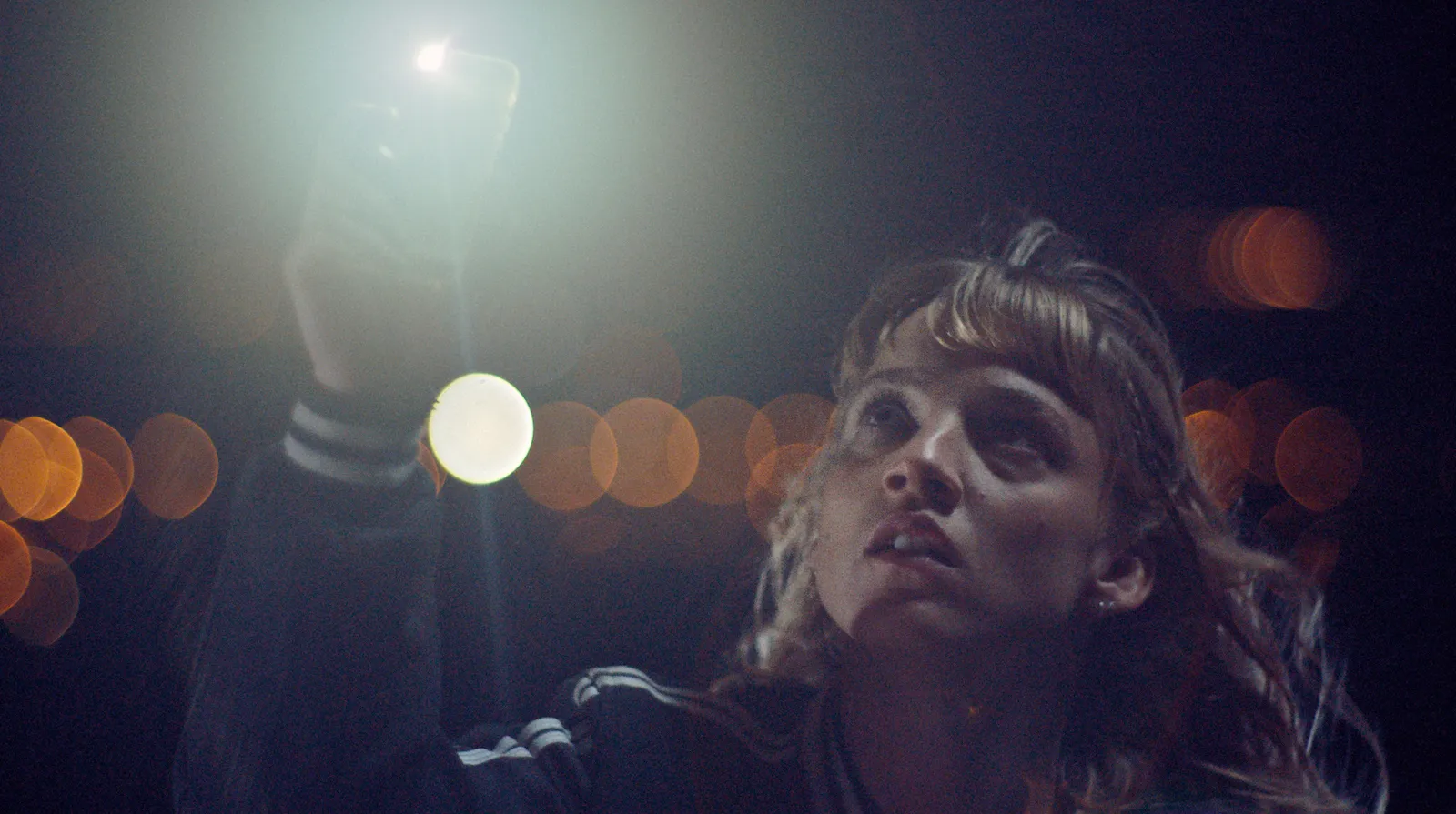Writer-director Jérémy Clapin follows up his acclaimed animated film I Lost My Body with a science fiction drama that explores similar territory. Meanwhile on Earth tells the story of Elsa, a young woman still grieving the disappearance of her astronaut brother Frank three years ago.
Living a stagnant life in their small French town, Elsa finds her routine disrupted when she begins receiving messages from beyond. Claiming to have Franck, a mysterious voice offers to return him if Elsa assists some visitors from outer space.
As Elsa delves deeper into this strange situation, she faces troubling choices that test both her love for Franck and her own sense of ethics. Clapin skillfully integrates supernatural elements into Elsa’s very human experience of trauma and loss, raising profound questions. What is the value we place on human life, and how far would we go for those we love? Meanwhile on Earth also examines how grief can isolate us or even turn outward in destructive ways.
Through Elsa’s journey, Clapin examines what makes us human amid the vast unknown of space. Blending live action and animated sequences, the film immerses viewers in a haunting, emotionally wrenching sci-fi drama. Megan Northam delivers a captivating lead performance at the heart of this metaphysical tale of connection transcending time and dimensions. Clapin proves himself again as a filmmaker who probes life’s deepest questions through imaginative, thought-provoking cinema.
Elsa’s Interstellar Crossroads
We’re immediately thrown into Elsa’s world, still grieving the loss of her astronaut brother, Frank, three years ago. Living quietly in their small French town, she works at a retirement home with her mother. Elsa keeps her artistic talents buried, lacking Franck’s encouragement.
Her routine is disrupted one night, hearing Franck’s voice from the trees. An earpiece appears, allowing contact with an invisible being. They claim Franck is with them, and if Elsa helps transport these entities to Earth, they’ll return him.
This is where things get strange. The beings require vessels, meaning human bodies. If Elsa brings people to the woods, her “friend” can take over their souls. Five hosts are needed within days before the cosmic “path” closes. Shockingly, one man is replaced against his will after threats to Elsa, leaving her responsible.
From here, Elsa walks a dark road. The “friend” insists its goal is mere survival, not conquest like stereotypical invaders. Yet taking lives remains no less grim. Elsa debates who to offer, weighing traits that resemble her own wasted potential. Believing saving Franck is worth any cost, she commits to damnation.
Some questions linger. Are these aliens, or interdimensional travelers? Is Franck truly with them, or a figment of Elsa’s grief? Ambiguities enrich the mystery, if frustratingly left open. Elsa clearly struggles with an existential dilemma, forced to choose between family and ethics in her darkest hour of need.
By exploring one woman’s profound loneliness amid cosmic vastness, Clapin crafts a complex study of connection, loss, and the unfathomable questions that arise when souls from other realms intersect with our own.
Transcending Reality Through Art
Clapin proves himself a masterful storyteller across formats. His shifts between Elsa’s striking animated daydreams and live action are seamless. In one, she floats with Franck beyond a bedroom window, the cosmos unfolding before them. Such vignettes feel poignantly personal, channeling Elsa’s psyche.
Robrecht Heyvaert’s cinematography is monumental in its own right. His sweeping drone shots capture Elsa small in the forest’s frame, loneliness personified against vast skies. Yet beauty emerges even in solitude—a quiet pond, Elsa pausing amid tall grass. Darkness cloaks more than it reveals, an apt veil for her turmoil.
Dan Levy’s ethereal score amplifies the mystery. Swelling strings accompany Elsa’s phantasmic visions, unease simmering beneath wonder. His compositions capture fleeting moments that stayed just a bit too long in memory. Special effects manifest the unknowable, bridging worlds through surreal methods unclear if wrought by alien or human hands.
Clapin’s integration of forms immerses us in Elsa’s mind. We peer within, beyond words’ reach, to realms where grief’s grasp proves fluid. Here art arises less an escape than a vessel, carrying comprehension where logic cannot. Through cinematic craft, Elsa’s interior landscape is laid bare, her journey’s essence distilled.
Between Love and Ethics
Elsa remains trapped in her sorrow over Franck’s disappearance. Three years on, she exists in a state of living death alongside bereaved parents who likewise lack resolve to move on. Her grief consumes all facets of life.
When offered the salvation of her beloved brother, Elsa encounters a poignant dilemma. To save Franck means sacrifice—not just her own ideals but the lives of others. Clapin spins the “trolley problem” on its head, posing a haunting inversion: would you end lives to spare your loved ones’? It lays bare humanity’s gray areas, how ethics gray when love, not reason, guides one’s hand.
Elsa’s sacrifice gradually grows extreme. Each selection feels a piece of herself turned over to the cold calculation of an alien will. Her desperate attempts to jump-start a life frozen in loss reflect grief’s ability to not only isolate its victims but prompt self-destruction. As the film asks how we value life—of family versus strangers—it questions if any cost is too high to redeem lost bonds.
Clapin presents grief and related themes in all their complexity, acknowledging light and dark within both love and ethics. Elsa’s journey suggests sacrificing one’s soul for another risks losing touch with our shared humanity. There may be no easy answers, only the solace that in confronting life’s hardest questions with empathy and care for all people, we keep our heads above water a while longer.
Megan Northam: Soul of “Meanwhile on Earth”
Megan Northam brings Elsa to life through sheer force of presence alone. Carrying much of the film solo opposite only a voice, her nuanced performance is the anchor keeping this surreal story tethered in reality.
Watching her eyes waver between despair and determination as Elsa first hears Franck’s voice shows a talent beyond Northam’s experience. Even without words, it’s clear Elsa’s torment and longing will stop at nothing. And in quieter moments, simple glances reveal doubt emerging that perhaps this grim task has become something more sinister.
Clapin asked much of his young lead, rarely cutting away as Elsa faces each grim selection. Northam rises to the challenge, imbuing moments like confronting a friend with regret that feels crushing in its honesty. As Elsa cracks under pressure, it’s the actress’s skilled showcase of a woman whose resilience is cracking, not broken.
Her raw emotiveness shines in the finale, where Elsa’s confession pours out as if years of sadness could no longer be dammed. It is a tour de force of feeling rendered real through Northam’s gift. She ensures Elsa is never just a plot piece—her full humanity comes through, making her sacrifice deeply impactful.
Megan Northam brings a complex, haunting soul to the screen and stays with viewers long after, proof that Clapin found his film’s beating heart in her magnificent performance.
Elsa’s Crossroads in the Woods
One scene capturing Elsa’s turmoil comes as she selects her next “host” in the forest. Walking alone, save for a disembodied voice guiding, her facade begins cracking in the vast, empty woods.
Through Robrecht Heyvaert’s lens, towering trees encase her small form against the looming task. Her chosen man appears through the brush, amiably chatting yet unaware of his impending role. As Elsa explains what’s required, doubt spreads across both faces, his shifting from smile to horror.
Dan Levy’s string strains mount, violins resembling Elsa’s fraying nerves. She protests the voice’s indifference, agony swelling in Megan Northam’s expression. Looking upon another’s dreams now in her clutches to destroy heightens her dilemma’s stakes.
When the man refuses, a visceral attack of light and sound jolts Elsa into screams. A sinister squelch signifies the takeover, a soul stripped before her eyes. Her horror etches itself upon viewers as profoundly as upon Elsa, stranded amid the ruins of her waning resolve.
This pivotal moment crystallizes Elsa’s descent, dragging her further from humanity with each life handled so callously. It drives home clashing themes of connection versus control, cutting both ways between Earth and beyond. A crossroads leaves Elsa shaken in her fragile role at the edge of dimensions.
Elsa’s Journey into the Unknown
Through Elsa, Clapin has crafted a multifaceted exploration of grief, ethics, and the fringes of human experience. Northam imbues the character with raw vulnerability, shuttling between despair and flickers of restored hope. Around her swirls a blend of visual styles and cerebral sci-fi musings, as mysterious as the cosmos Elsa struggles to comprehend.
“We make up for lack of wonder in this world with wondering.” Elsa’s intrigue transcending dimensions reflects our collective capacity for curiosity without answers. Her story resonates by illuminating life’s darkest corners with empathy rather than fear of the unknown.
Meanwhile on Earth is a haunting supernatural drama demanding reflection. While its ambiguous conclusion may frustrate literalists, Clapin sparks discussion on loss and connection in unpredictable ways. Cinephiles and those experiencing their own personal “paths” will find thought-provoking artistry that lingers long after its mesmerizing finale fades to black. For adventurous souls curious about life’s unsolvable puzzles, Elsa’s journey beyond is well worth taking.
The Review
Meanwhile on Earth
Meanwhile on Earth is a profoundly moving meditation on grief that lingers in the mind. Through his blend of lush live-action and evocative animation, Clapin immerses viewers in Elsa's plight, her inner turmoil conveyed brillantly by Northam. While its cryptic conclusion may divide, this sci-fi drama's underlying humanity and themes of loss will resonate long after. Clapin proves himself yet again a filmmaker of rare vision, handling complex issues with empathy and no easy answers. For those willing to embark on a surreal, emotional odyssey, Elsa's compelling story deserves to be experienced.
PROS
- Deeply moving performance by Megan Northam in the complex lead role
- Clapin's blend of live-action and animation is visually stunning.
- Profoundly explores universal themes of grief, family, and ethics
- Opens discussion on life's inexplicable hardships with nuance
CONS
- Ambiguous conclusions may frustrate some looking for clarity.
- Sci-fi plot elements occasionally feel convoluted





















































